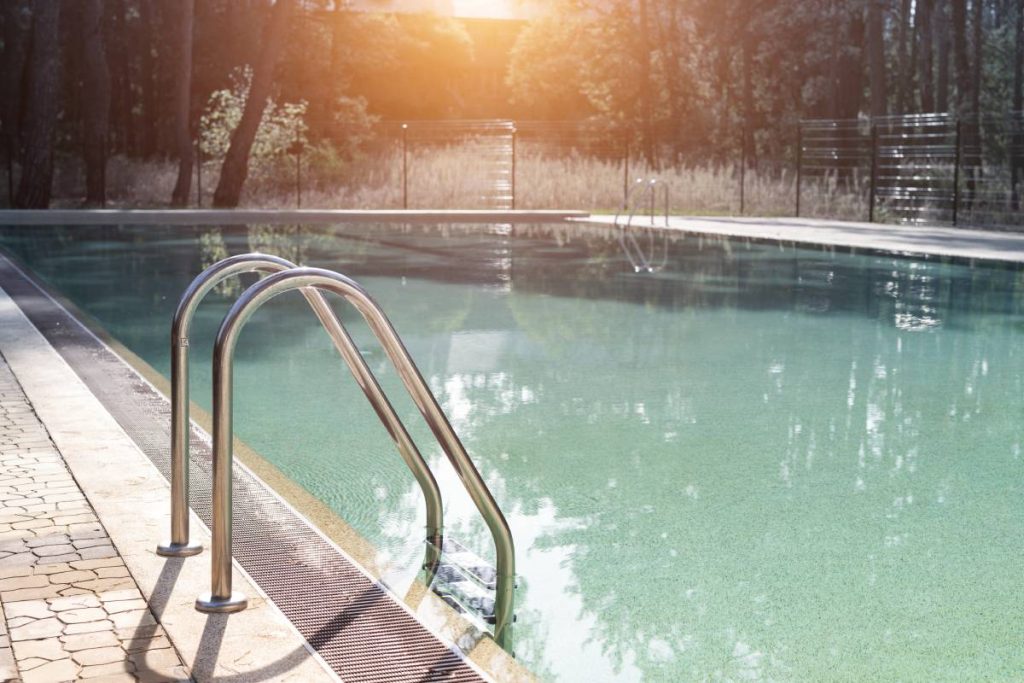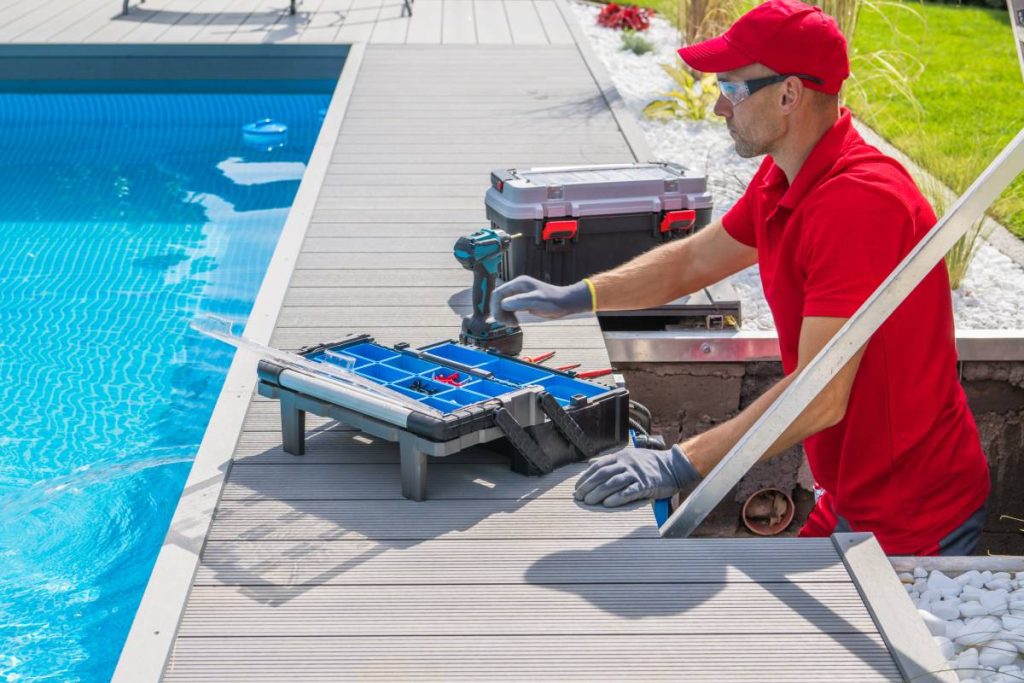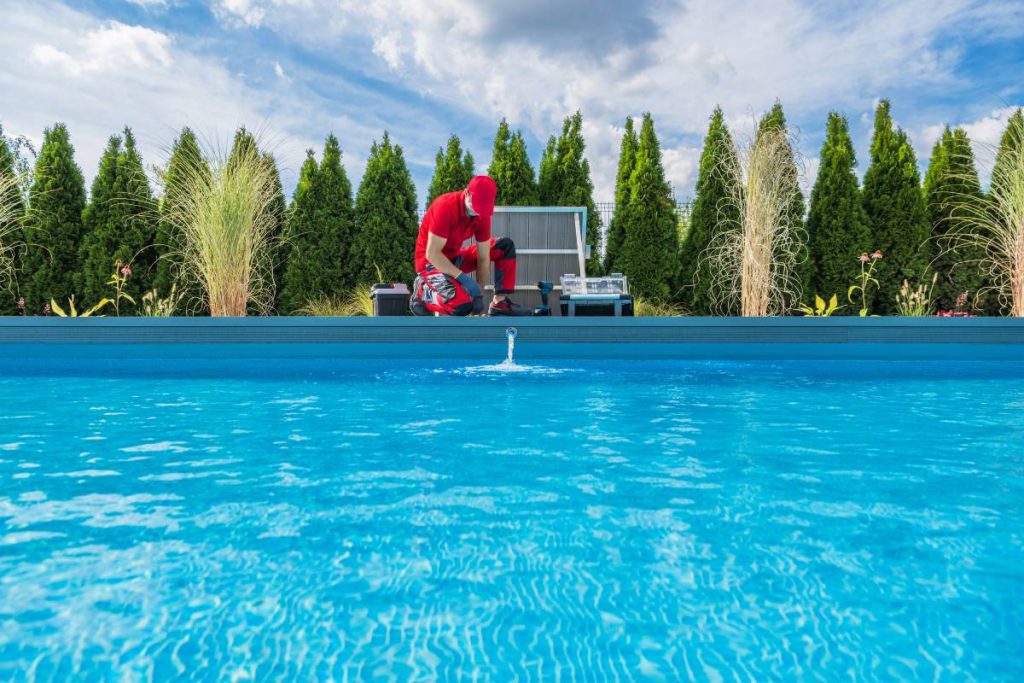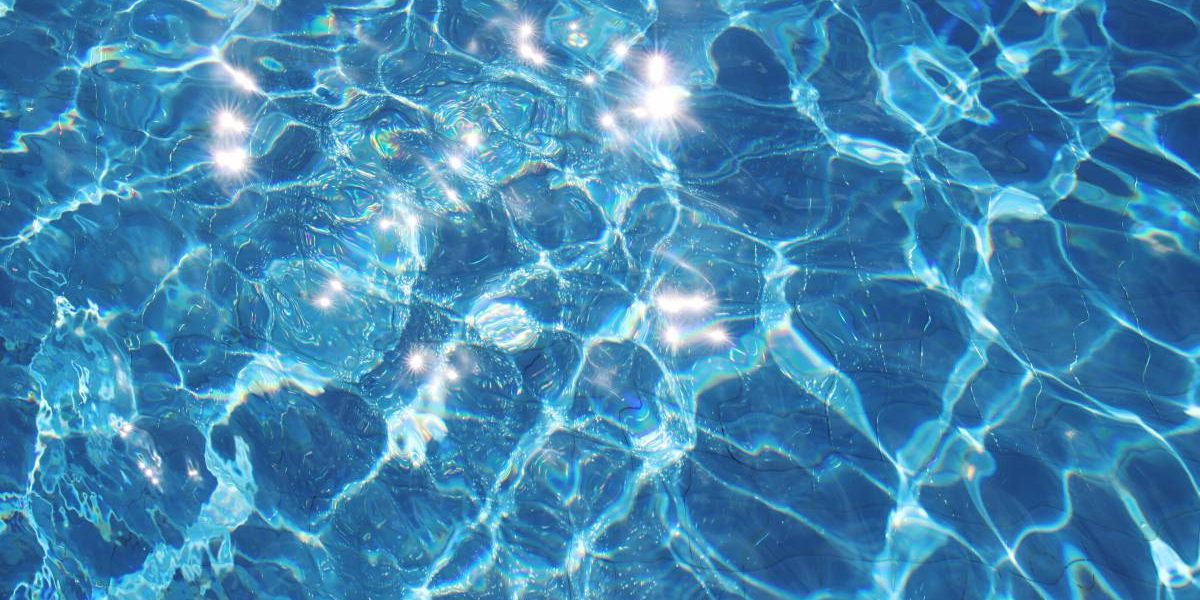You just got your pool with new paint or maybe it’s EcoFinish which is a long-lasting and highly durable coating, all of this is for the benefit of your family to have this beautiful addition for as long as it can be. But all of this could be nothing if you still use chlorine for your pool maintenance.
Maintaining a clean and healthy pool is often associated with the use of chlorine, but this chemical can be harsh on your/your daughter’s skin and eyes. What’s the point of having a beautiful pool but it’s irritating every time you spend your free time in it, right?
Let’s consider some alternatives to using a lot of chlorine in your pool to make swimming a more enjoyable experience.
What Other Options Can I Consider for Pool Sanitisation Besides Chlorine?
Chlorine is widely used, yet there are other options worth exploring.
Bromine is a common substitute that functions similarly to chlorine, effectively eliminating bacteria. However, it can be harmful to metal and cause skin and eye irritation.
Saltwater chlorination is another eco-friendly choice that transforms salt water into chlorine using a salt generator. This option is gentler on your skin and eyes compared to regular chlorine.
Ultimately, the decision on which option to use depends on your preferences and pool needs.

How Does an Ozone Generator Help Keep Pools Clean?
An ozone generator can be an efficient way to maintain a clean pool without relying heavily on chlorine.
But how does it work? Firstly, the generator produces ozone gas, which is then introduced into the pool water, effectively eliminating bacteria and organic substances.
What makes ozone generators appealing is their affordability and user-friendliness. Consequently, they provide a practical solution to reduce chlorine usage, which can otherwise be harsh on your skin and eyes.
The Advantages of Salt and Mineral-based Pool Cleaning
Apart from the widely popular chlorine, pool cleaning can also be achieved through the use of salt or minerals. Let’s uncover the benefits of opting for salt or minerals as pool sanitisers.
To begin with, salt serves as a natural alternative, lacking the abrasive chemicals found in chlorine. As a result, it is kinder to your skin and eyes and more environmentally friendly. On the other hand, minerals function similarly to salt, although they may come with a slightly higher cost.
Both salt and minerals effectively combat bacteria, ensuring a hygienic pool environment. If you’re seeking an alternative pool-cleaning method, these options stand out as favourable choices.

Is it Possible to Eliminate Pool Bacteria without Chlorine?
Ditching chlorine for pool sanitation can be achieved in a couple of ways. Utilizing ultraviolet light, a form of radiation capable of eliminating bacteria and viruses is one effective method.
Alternatively, the use of ozone, an eco-friendly gas renowned for its water-purifying properties, proves to be another powerful means of eradicating harmful bacteria and viruses from your pool.
The Disadvantages of Alternatives Non-Chlorine Pool Maintenance
If you’re considering alternatives to chlorine for your pool, it’s important to be aware of the potential drawbacks. Here’s what you should keep in mind:
Firstly, it can be a time-consuming and demanding task to find a suitable sanitiser that doesn’t contain harmful chemicals for your pool.
Moreover, the cost can be a significant downside when opting for alternatives, making it a less budget-friendly choice compared to traditional chlorine usage.

Choosing the Right Pool Cleaning Method for You
There are various methods for maintaining a clean pool, each with its own advantages and disadvantages. Here’s a breakdown to help you decide:
- Manual cleaning, the most popular and cost-effective option, requires a net and some manual effort to clear out debris.
- Automatic cleaning, although more maintenance-intensive, is suitable for those with busy schedules, involving the use of a machine to suction out debris from the pool floor.
- Chlorine-free cleaning relies on natural bacteria to decompose organic matter in the pool, eliminating the need for harsh chemicals.
In Conclusion
No, your pool doesn’t necessarily rely on chlorine for sanitation. Ozone generators, salt, or minerals can effectively combat pool bacteria.
Given that chlorine can lead to skin irritation and other health concerns, changing pool maintenance alternatives besides chlorine might be the better decision for your pool and your family’s well-being.











